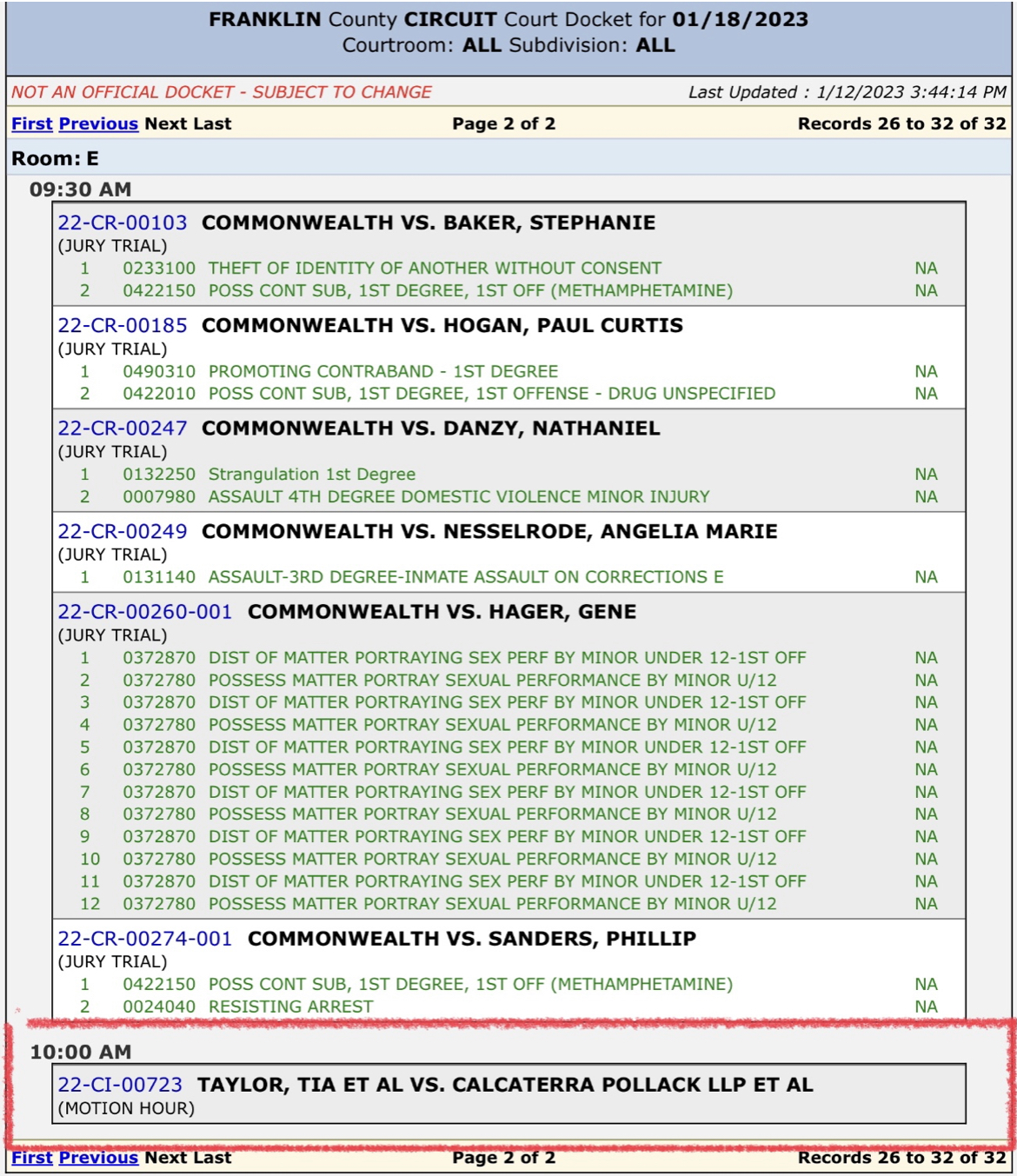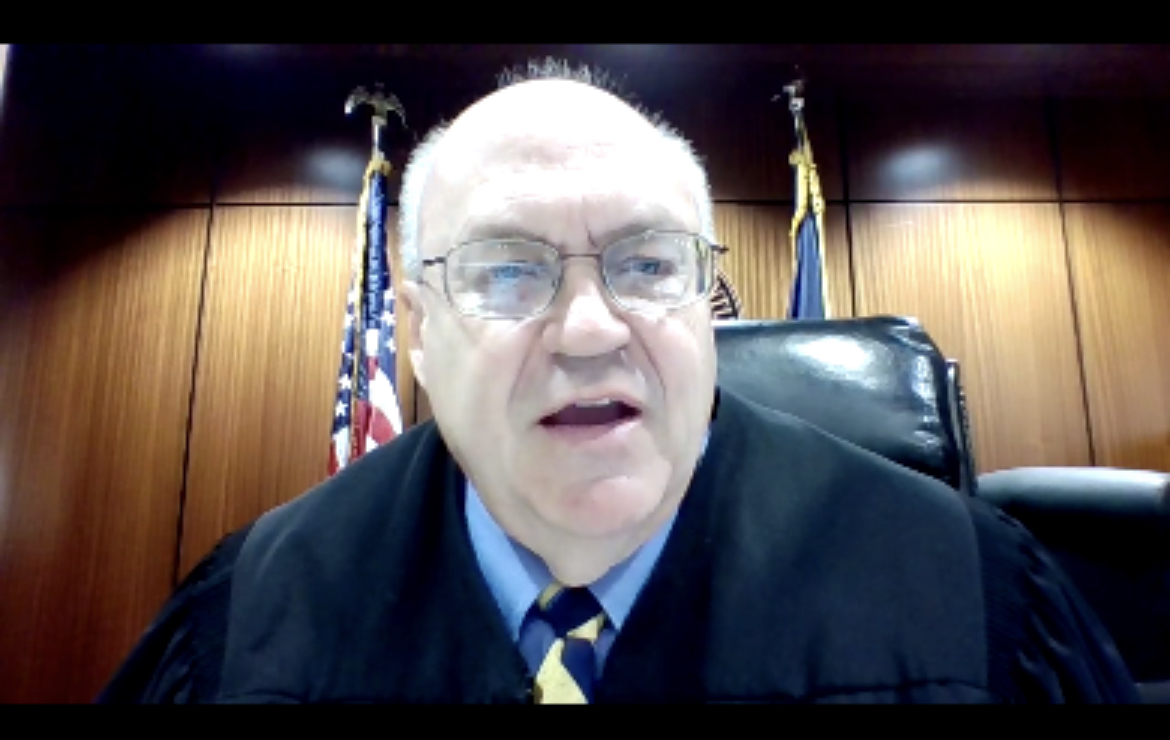

A January 18 hearing in Franklin Circuit Court confirms the critical role Kentucky's open records law played in exposing facts indicative of improper bid solicitation and an apparent cover-up by the Kentucky Retirement Systems and the Kentucky Public Pension Authority.
The bid rigging case, Tia Taylor, et al. v. Calcaterra Pollack, LLP et al., was filed shortly after the court issued opinions in two cases — filed by Louisville attorneys Jordan White and Glenn Cohen — determining that the KPPA violated the open records law in denying Cohen’s and White’s requests for New York law firm Calcaterra Pollack's investigative report into "specific investment activities conducted by the Kentucky Retirement Systems to determine if there are any improper or illegal activities on the part of the parties involved.” The investigation and resulting report were prepared by the New York law firm under a contract with the Retirement Systems.
https://www.courier-journal.com/story/opinion/2022/09/14/kentucky-pensi…
Ruling that the Kentucky Public Pension Authority violated the open records law in denying White’s and Cohen’s requests, the court commented on public records confirming that KPPA:
“participated in a questionable bid solicitation process to contract with attorneys for a (second) investigation that cost taxpayers at least $1.2 million (https://www.courier-journal.com/story/news/politics/ky-general-assembly…).
“[U]nder the KORA the public has a compelling interest in reviewing the KPPA/KRS Investigation to ascertain whether the agency acted ‘promptly, thoroughly and effectively.’”
Based on its review of those records, the court questioned whether “the Report was commissioned to cover up or minimize those mistakes in an effort to convince the OAG to not pursue claims that could prove embarrassing to the current or former management of KPPA.”
Attorneys for defendants have filed a motion to dismiss the bid rigging case based on expiration of the statute of limitations, the plaintiffs’ lack of standing, and the absence of minimum contact to establish personal "long arm" jurisdiction.
The court patiently listened to the parties’ arguments in a 90 minute hearing earlier this week.
Judge Phillip Shepherd again emphasized the importance of the case involving a contractor’s provision of services under a public contract with a public agency for an investigation of the Kentucky Retirement System at a substantial cost to taxpayers.
If this were a typical case involving a preferred bidder awarded a contract to build a road in Kentucky, Shepherd noted, the facts here "would raise a lot of red flags under procurement law."
He expressed doubt about defendants' jurisdictional argument. Given the contract for personal services between defendants and the Kentucky Retirement Systems, he commented that they have a "heavy lift" to convince him they had insufficient contacts to establish personal jurisdiction.
Addressing defendants' statute of limitation argument -- which is based on their claim that plaintiffs' had sufficient facts supporting a bid rigging case before the Cohen and White open records opinions required disclosure of the Calcaterra Pollack report -- Shepherd pointedly asked plaintiffs' counsel when they obtained the Calcaterra Pollack report.
Plaintiffs' counsel responded that they obtained the report -- along with Cohen, White and the public -- shortly after the court ordered its disclosure in the Cohen and White cases, and that they filed the bid rigging case within a month of receipt of the report.
Although he gave no indication, Shepherd's question suggests that defendants may also have a "heavy lift" convincing him that the bid rigging case is barred by the one year statute of limitations.
The question of plaintiffs' standing to bring the bid rigging case prompted the most heated debate. Defendants argue that the attorney general alone has standing. Plaintiffs argue their standing as trust beneficiaries. Shepherd's questioning gave no indication how he would resolve this issue -- perhaps the most confounding given the case's unusual posture.
Shepherd concluded that he would issue an order on defendants' motion to dismiss after he had a chance to thoroughly review the voluminous briefs.



